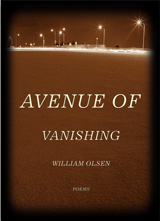
That’s what infinity did, contain and threaten,
until friends complied by going one by one
to resurface obligingly in memories, and it sometimes still feels
we left them at our leisure, that such choice was good
so long as a larger choice seemed to succeed it,
nor could gazing bereave us of common sense,
nor would all plenty and foison fall into penury,
nor would shame forever drop its heavy head.
Infinity felt like life, and it said so, and waited.
It even spelled our autumnal names in solid gold
leaves that an inexhaustible supply of wind
tossed for such pleasure as we had said and said
until it transformed into the profound conviction
that the right track was lost—imagine—forever,
it turned our tears into pebbles that can’t seep away,
that can’t fly away, that we don’t dare to pronounce,
yet it seemed concocted out of a clear beautiful sky,
yet it peeped out the woodshed and drank from the gutter spout,
yet it wrestled with itself and sank in eager mud
that presently it might be outwardly known
along with all the other creatures that perish,
heartbreaking idea among many heartbreaking ideas.
--from Infinity
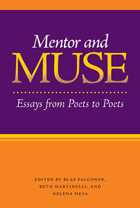
In Mentor and Muse, a collection of twenty-nine insightful essays by some of today’s leading poetic minds, editors Blas Falconer, Beth Martinelli, and Helena Mesa have brought together an illuminating anthology that draws upon both established and emerging poets to create a one-of-a-kind resource and unlock the secrets of writing and revising poetry.
Gathered here are numerous experts eager to share their wisdom with other writers. Each author examines in detail a particular poetic element, shedding new light on the endless possibilities of poetic forms. Addressed within are such topics as the fluid possibilities of imagery in poetry; the duality of myth and the personal, and the power of one to unlock the other; the surprising versatility of traditional poetic forms; and the pleasure of collaboration with other poets. Also explored in depth are the formative roles of cultural identity and expectations, and their effect on composition; advice on how to develop one’s personal poetic style and approach; the importance of setting in reading and meaning; and the value of indirection in the lyric poem. Challenges to conventional concepts of beauty are examined through Shakespeare’s sonnets, and the ghost of Longfellow is called upon to guide students through the rewards and roadblocks of writing popular poetry. Poetic persona is demystified through Newton’s law of gravity, while the countless permutations of punctuation are revealed with analysis of e. e. cummings and W. S. Merwin.
The essays include the full text of the poems discussed, and detailed, relevant writing exercises that allow students the opportunity to directly implement the strategies they have learned. While many advanced topics such as authenticity, discordant music, and prosody are covered, this highly readable volume is as user-friendly as it is informative. Offering a variety of aesthetics and approaches to tackling the issues of composition, Mentor and Muse takes poets beyond the simple stages of poetic terms and strategies. These authorsinvite students to explore more advanced concepts, enabling them to draw on the traditions of the past while at the same time forging their own creative paths into the future.
Chosen as one of the "Best Books for Writers" by Poets & Writers magazine
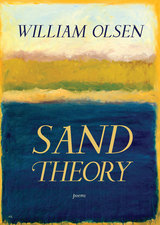
The energy of Olsen’s poems is generated by his ability to meld the intellectual and the emotional, the abstract and the concrete, into a seamless whole while maintaining a sense of wit and playfulness. Sand Theory cements Olsen’s standing as one of the most vital poets writing today, an audacious chronicler of “the supremely open moment.”
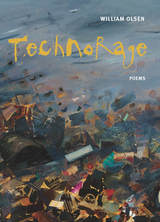
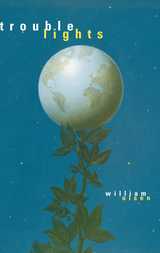
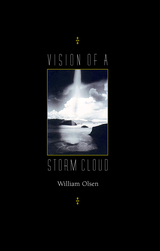
READERS
Browse our collection.
PUBLISHERS
See BiblioVault's publisher services.
STUDENT SERVICES
Files for college accessibility offices.
UChicago Accessibility Resources
home | accessibility | search | about | contact us
BiblioVault ® 2001 - 2024
The University of Chicago Press









